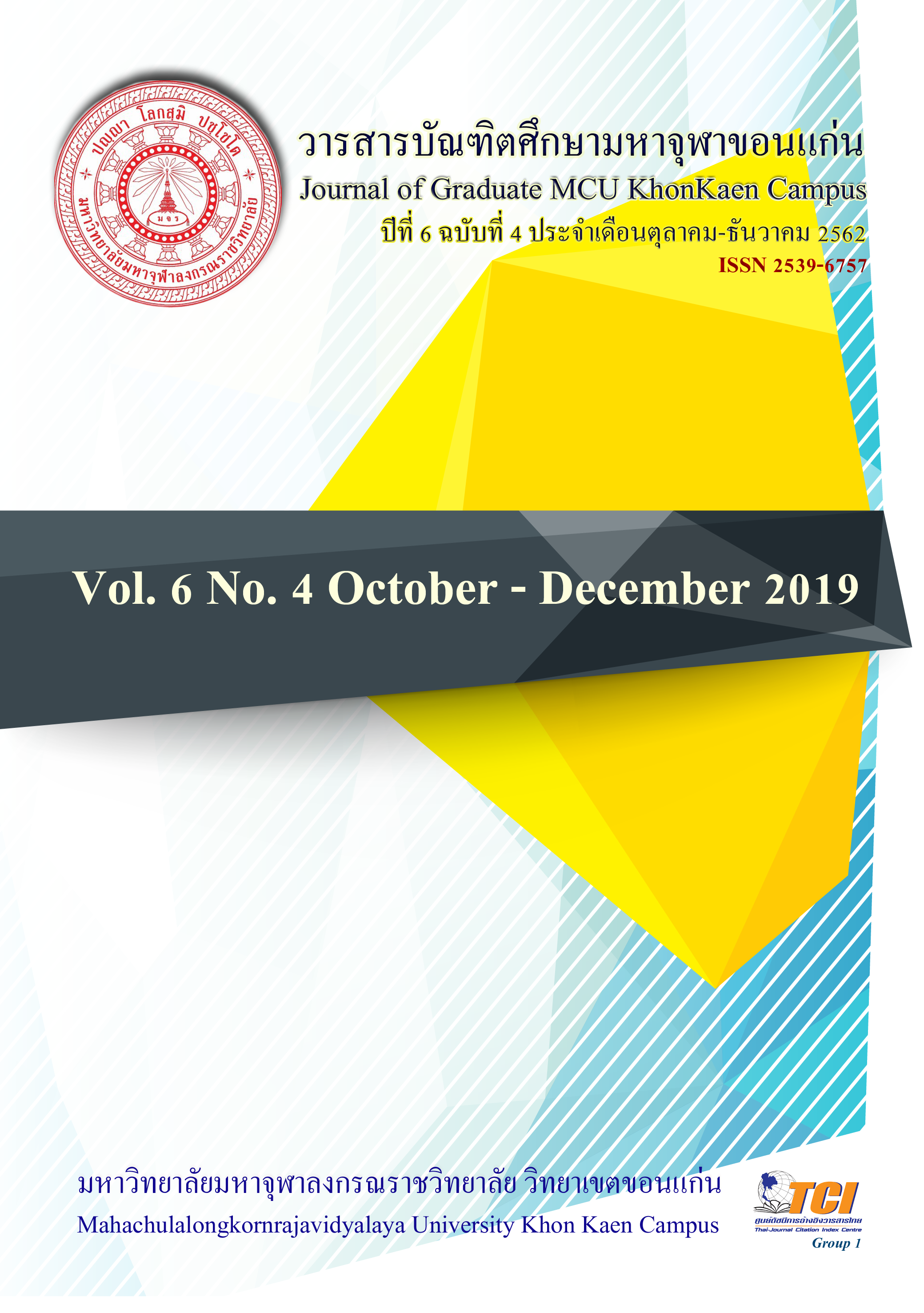An Analytical Study Of Buddhist Ethical Concept And Death Penalty
Main Article Content
Abstract
The aims of this research were: 1) to study the concepts of Buddhist ethicsin relations to death penalty; 2) to study the problematic conditions of the deathpenalty; 3) to analyze the ethical concepts and the death penalty through thequalitative research methodology and the gathered data were interpreted by meansof the descriptive analysis.
The research results were as follows:
1) Based on the study of the concepts of Buddhist ethics in relations tothe death penalty, it was suggested that Buddhist philosophy has its view thatintention is a conscience. The criteria for judging good relies on the five precepts andthe principles of kamma. Buddhist ethics is a rule for living together for the order andpeace of society. The death penalty is considered the highest penalty imposed bythe law to focus on the prisoners' lives as a legal process in which the governmentpunishes crimes against persons who commit crimes using various methods todestroy life or to kill. It is to absolutely eliminate the perpetrator from society. Themethods of execution are differentiated according to the era.
2) The study of the problematic conditions of death penaltysuggested that Thailand is one of the countries that has used the death penalty since ancient times to the present day. The death penalty is a punishment as thelaw of the country. As for the punishment for monks who commit crimes inBuddhism, it is called Buddha's command or discipline. The rules and regulationsthat the Lord Buddha set have penalties based on the faults from the lightest to the heaviest one, which is termination of monkhood.
3) In regards to the analysis of the ethical concepts and the death penalty, it was found that the five precepts are the principles that the Lord Buddhaset as a basic ethical principle for peaceful coexistence. As for the death penalty, Buddhism has an attitude that when a person has committed a serious violation of the law of the country, a penalty should be considered for that person according to that code, which is based on the principle of kamma in Buddhism. The death penalty compared to the kamma principle is classified as a heavy unwholesome act. Therefore, the person concerned with this matter should use the compassion principles: physically loving kindness (mettā-kāya-kamma), vocally loving kindness (mettā-vacī-kamma) and mentally loving kindness (mettā-mano-kamma) to those who are punished by the death penalty.
Article Details
References
Rights Commission.
Phra Dharmakosajarn (Prayoon Thammachitto). (2009). Greek Philosophy. The Birth of Western Wisdom. (7th ed.)
Bangkok : Siam.
Pridi Kasemsup. (2014). Nitiphaya. (13th ed.). Bangkok: Faculty of Law, Thammasat University.
Tin Pan Nakata. (2014). Moral, Ethics and Moral from a philosophical perspective. Bangkok : Bok Fai.

